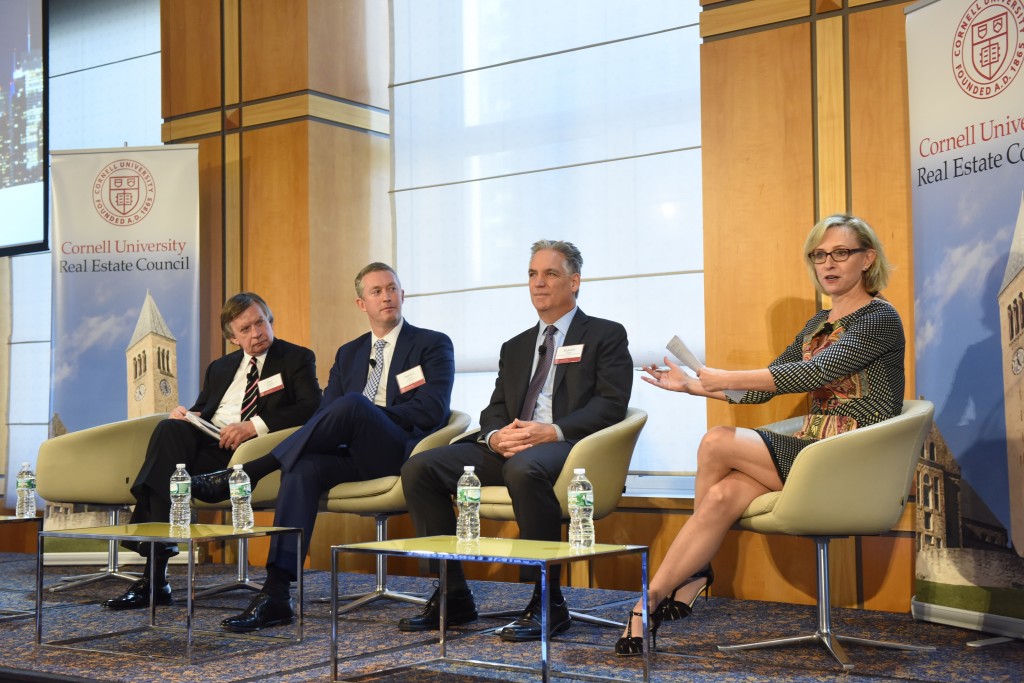

Cornell’s 33rd Annual Real Estate Conference was held in NYC from Oct 15-16. The forum was highlighted by several panels of experts sharing industry insight with Baker students and conference attendees. Throughout the day, these panels opined on different trends affecting the markets and different asset classes. The Capital Impact Panel, in particular, noted the differences between the lending climate now, and that which preceded the great recession.
The Capital Impact panel was moderated by Greta Guggenheim, the CEO of TPG Real Estate Finance. She moderated a panel consisting of Dan Flanigan, Chair of the Real Estate and Financial Services Department at Polsinelli, Dennis Schuh, Managing Director at JP Morgan, and Richard Walsh, Managing Director at New York Life Real Estate Investors. This high-powered panel was able to give insight into the lending practices of some of the largest firms on Wall Street.
Of particular note, was the analysis of institutional lending throughout a real estate cycle. As we reach what many people believe to be the end of a cycle, this topic is of extreme importance to borrowers trying to get projects funded. Right now, borrowers are in luck as lending heats up. Richard Walsh of New York Life, discussed how his firm reached its lending rate from the previous year nearly a quarter early in 2015.
While the increase of debt deals is a positive sign for borrowers, it also raises questions as to how frothy the market is, especially compared to pre-recession levels. Many of the lenders on the panel noted that the current lending environment is much different than the one in 2008. Greta Guggenheim, from TPG capital, discussed how levels of debt financing were much frothier in 2008 than they are now. For instance, she noted that when capitalizing projects before the great recession, some of the banks were lending at LTV’s that were over 100%. Not surprisingly, “some of those lenders aren’t around anymore.” While we may not be at near recession levels, the Capital Impact Panel did caution against feeling too secure in this type of market, as frothy lending often precedes the end of the cycle.
